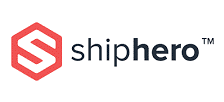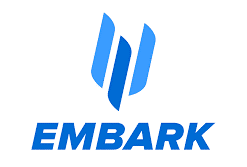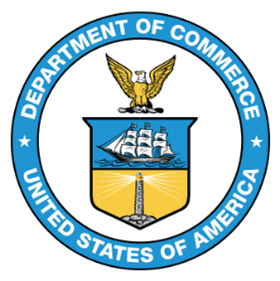 Pine Tar! That became a tongue-in-cheek metaphor for an objection or a potential scandal in 1983 – at least for teenagers like me at that time. George Brett of the Kansas City Royals hit a home run in the ninth inning of a game to give his team a last inning lead against the New York Yankees. The Yankees manager asked the umpire to inspect Brett’s bat for pine tar and the umpires took back the home run for too much pine tar on Brett’s bat. Pine tar was limited on bats to keep balls from being ruined. The Yankees won but the finding was eventually overruled in the Royals’ favor. But the image of Brett sprinting from the dug out will forever be a historic moment in sports pop-culture.
Pine Tar! That became a tongue-in-cheek metaphor for an objection or a potential scandal in 1983 – at least for teenagers like me at that time. George Brett of the Kansas City Royals hit a home run in the ninth inning of a game to give his team a last inning lead against the New York Yankees. The Yankees manager asked the umpire to inspect Brett’s bat for pine tar and the umpires took back the home run for too much pine tar on Brett’s bat. Pine tar was limited on bats to keep balls from being ruined. The Yankees won but the finding was eventually overruled in the Royals’ favor. But the image of Brett sprinting from the dug out will forever be a historic moment in sports pop-culture.
The pine tar incident popped back in my mind due to Major League Baseball’s recent initiative to ensure pitchers are not using illegal substances – mainly Spider Tack, on the baseballs to gain an unfair advantage. The examinations of pitchers is getting a bit comical…and a bit ridiculous IMHO. And now on to this week’s logistics news…
- Ahold Delhaize USA Ramps Up Supply Chain Transformation
- ShipHero Raises $50 million Investment
- Embark Trucks to go public via $5.2 billion SPAC deal
- Hyundai acquires high-profile robotics firm Boston Dynamics
- US Goods-Trade Gap Widens
- U.S. bans imports of solar panel material from Chinese company
 Ahold Delhaize USA (ADUSA) revealed that more than 85% of its extensive East Coast grocery retail supply chain supporting Ahold Delhaize USA’s banners will be self-distributed by the end of 2022. Steve Banker detailed this transformation in his Forbes.com article during its early days. ADUSA now states that five more distribution centers will be converted to the self-managed network next year, bringing the total number of network facilities to 25, up from 17 at the start of the network’s three-year transformation. Perhaps most impressive is the range of technology that is being deployed to support this digital transformation.
Ahold Delhaize USA (ADUSA) revealed that more than 85% of its extensive East Coast grocery retail supply chain supporting Ahold Delhaize USA’s banners will be self-distributed by the end of 2022. Steve Banker detailed this transformation in his Forbes.com article during its early days. ADUSA now states that five more distribution centers will be converted to the self-managed network next year, bringing the total number of network facilities to 25, up from 17 at the start of the network’s three-year transformation. Perhaps most impressive is the range of technology that is being deployed to support this digital transformation.
 ShipHero announced the close of a $50 million investment round led by Riverwood Capital. ShipHero provides a warehouse management software-as-a-service platform as well as outsourced fulfillment services for Shopify and Amazon merchants. The business ships out of three warehouses strategically located across the US; that number is expected to grow to ten by the end of 2021. The investment represents ShipHero’s first institutional funding and it will be used to accelerate the company’s product roadmap and growth.
ShipHero announced the close of a $50 million investment round led by Riverwood Capital. ShipHero provides a warehouse management software-as-a-service platform as well as outsourced fulfillment services for Shopify and Amazon merchants. The business ships out of three warehouses strategically located across the US; that number is expected to grow to ten by the end of 2021. The investment represents ShipHero’s first institutional funding and it will be used to accelerate the company’s product roadmap and growth.
 Embark Trucks stated that it will merge with a blank-check firm in a deal that will result in a market capitalization of $5.2 billion. Embark provides software and associated services to power self-driving trucks. The company’s product suite includes the Embark Universal Interface that supports OEM integration, Embark Driver – sensors-first automated driving software, and Guardian – autonomous fleet enablement including monitoring and remote assist capabilities. SPAC is an acronym for special purpose acquisition company. SPAC deals (blank-check) occur in reverse chronological order in the sense that money is raised through a public offering without an explicit operating company determined, and then that money is subsequently used to acquire a target (privately-held) operating company.
Embark Trucks stated that it will merge with a blank-check firm in a deal that will result in a market capitalization of $5.2 billion. Embark provides software and associated services to power self-driving trucks. The company’s product suite includes the Embark Universal Interface that supports OEM integration, Embark Driver – sensors-first automated driving software, and Guardian – autonomous fleet enablement including monitoring and remote assist capabilities. SPAC is an acronym for special purpose acquisition company. SPAC deals (blank-check) occur in reverse chronological order in the sense that money is raised through a public offering without an explicit operating company determined, and then that money is subsequently used to acquire a target (privately-held) operating company.
 Boston Dynamics, the developer of those super cool looking robotic dogs that open doors and humanoids that climb stairs, received a controlling-stake investment from Hyundai. Boston Dynamics also recently launched its Pick solution, a depalletizing system that leverages high-resolution 2D and 3D vision and machine learning algorithms to locate cartons on single, rainbow and mixed-SKU pallets. I certainly hope Boston Dynamics continues with its foray into the warehouse automation market.
Boston Dynamics, the developer of those super cool looking robotic dogs that open doors and humanoids that climb stairs, received a controlling-stake investment from Hyundai. Boston Dynamics also recently launched its Pick solution, a depalletizing system that leverages high-resolution 2D and 3D vision and machine learning algorithms to locate cartons on single, rainbow and mixed-SKU pallets. I certainly hope Boston Dynamics continues with its foray into the warehouse automation market.
 The The U.S. merchandise-trade deficit widened more than forecast in May as imports rose and exports declined. The deficit increased to $88.1 billion from a revised $85.7 billion in April, according to Commerce Department data released June 24. Imports have resumed gains as house-bound Americans purchase goods for their homes and retailers work to replenish inventories made lean following the initial pandemic-induced global stoppage. Ports worldwide have been congested and freight rates have climbed to records amid a shortage of pallets and containers.
The The U.S. merchandise-trade deficit widened more than forecast in May as imports rose and exports declined. The deficit increased to $88.1 billion from a revised $85.7 billion in April, according to Commerce Department data released June 24. Imports have resumed gains as house-bound Americans purchase goods for their homes and retailers work to replenish inventories made lean following the initial pandemic-induced global stoppage. Ports worldwide have been congested and freight rates have climbed to records amid a shortage of pallets and containers.
The Biden Administration banned imports of solar panel material from a Chinese company, Hoshine Silicon Industry, over forced labor allegations. The U.S. Commerce Department separately restricted exports to Chinese companies, saying they were involved with the forced labor of Uyghurs and other Muslim minority groups in Xinjiang. Chinese Foreign Ministry spokesperson Zhao Lijian dismissed accusations of genocide and forced labor in Xinjiang as “nothing but rumors with ulterior motives and downright lies.”

















